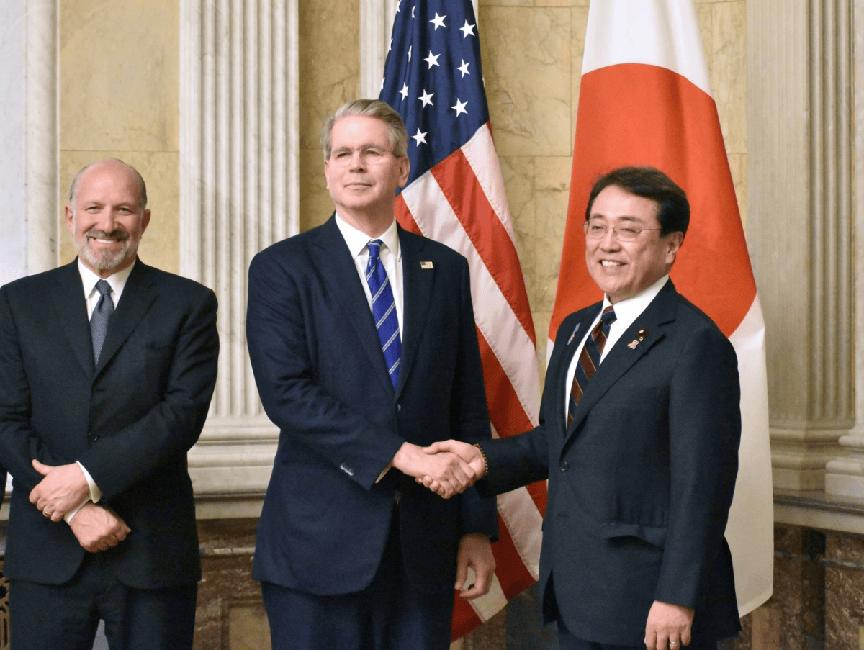
Recently, US-Japan trade negotiations have hit a serious impasse, with the issue of automobile tariffs emerging as an insurmountable obstacle between the two sides. Japan firmly opposes the US proposal to maintain a 25% tariff on automobiles. In response, the US has taken an even tougher stance, threatening to impose exorbitant tariffs of 30%-35% on Japanese goods. This tense situation brings the US-Japan trade negotiations to the brink of a virtual breakdown, posing a significant potential impact on the global automobile and related parts industry chains.
Since the adjustment of the new round of US trade policies, the automotive industry has become a focal point of US-Japan trade frictions. As a major automobile manufacturing and exporting country, Japan's exports of automobiles and parts account for more than one-third of its total exports to the US. The automotive industry plays a pivotal role in Japan's economic system, directly and indirectly employing more than 5 million people, accounting for 8% of the country's total workforce. Japan believes that the US demand to maintain a 25% tariff on automobiles seriously undermines the interests of its core industries and violates the principles of fair trade, so it has adopted a firm stance of refusal during the negotiations.
Akazawa Ryomasa, Japan's chief trade negotiator and Minister in Charge of Economic Revitalization, has emphasized on multiple occasions that the automotive industry represents Japan's "national interests" and cannot be sacrificed in any trade agreement. There is also a consensus within the Japanese government that it will not make major concessions in other areas until the issue of automobile tariffs is resolved. Japanese Prime Minister Ishibashi Shigeru has clearly stated that he will not rush to reach an agreement at the expense of national interests. At the domestic level, automotive industry-related enterprises and trade unions have also exerted pressure on the government, demanding that it stand firm and safeguard the international competitiveness of Japan's automotive industry and employment opportunities.
Facing Japan's tough stance, the US has not softened its position but instead escalated its threats. US President Trump has publicly expressed dissatisfaction with the current state of US-Japan trade, claiming that Japan has "exploited" the US for decades. He accuses Japan of erecting numerous barriers to US automobile exports, making it difficult for American cars to enter the Japanese market, while Japan floods the US market with its vehicles. Trump has threatened to send a letter to Japan, stating that if US demands are not met, tariffs on Japanese goods will be increased to a staggering 30%-35%, far higher than the current 24% rate. The Office of the United States Trade Representative has also issued a statement hinting at more aggressive trade measures to force Japan to make concessions on automobile tariffs and other trade issues.
The deadlock in US-Japan trade negotiations has had a far-reaching impact on the global automobile and related parts industry chains. On one hand, multinational automakers face great uncertainty. Japanese automakers such as Toyota and Honda have extensive sales networks and production bases in the US market. The continued high tariffs, or even further increases, will significantly raise their production costs and squeeze profit margins. Companies are compelled to reevaluate their global production layouts and consider shifting some of their production capacity to other regions to avoid tariff risks, which may lead to a large-scale restructuring of the global automotive industry supply chain. On the other hand, automotive parts suppliers have also been affected. Japan is a major global supplier of automotive parts, with key components such as engines, transmissions, and electronic components occupying a crucial position in the global supply chain. The fluctuations in tariffs caused by trade frictions have left parts suppliers facing numerous problems, including reduced orders, inventory backlogs, and increased transportation costs, and some small and medium-sized enterprises are even facing a survival crisis.
In terms of market reaction, since the news of the deadlock in US-Japan trade negotiations broke, the capital market has responded rapidly. The Nikkei 225 index has fluctuated as a result, and stocks in the automotive sector have generally declined, reflecting investors' lowered expectations for the future earnings of Japanese automakers. In the US stock market, stocks in the automotive and related industries have also performed poorly. The market is concerned that the escalation of trade frictions will disrupt the stability of the domestic US automotive market, affecting consumer confidence and corporate investment decisions. In addition, the price system of the international automotive market has also been impacted. Consumers expect car prices to rise due to tariff factors, and some potential car-buying demand has been suppressed.
As two of the world's largest economies, the stability of US-Japan trade relations is of great significance to the global economic landscape. The current impasse in US-Japan trade negotiations over automobile tariffs not only tests the diplomatic wisdom and negotiation skills of both sides but also poses new challenges to the stability of the global trade order. In the future, whether the two sides can break the deadlock through constructive dialogue and compromise and reach a mutually beneficial trade agreement remains a matter of great concern to the international community. In the event of a breakdown in negotiations and the imposition of high tariffs by both sides, the negative impacts will extend far beyond just the US and Japan, and the global automotive industry and the world economy will bear a heavy burden.

Driven by the Trump administration's push to relax financial regulations and the recovery of investment banking business, the market value of the six major banks in the United States has cumulatively increased by approximately 600 billion US dollars by 2025.
Driven by the Trump administration's push to relax financia…
On Christmas evening, U.S. President Trump posted on social…
According to multiple foreign media reports, the recent fin…
The middle class, once regarded as the cornerstone of Ameri…
On December 19th local time, the US military launched a lar…
The Boxing Day sunshine should have cast a false glow of pr…